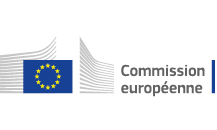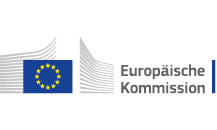- Title
- Risk Capital Facility for the Southern Neighbourhood
- Long Title
- Risk Capital Facility for the Southern Neighbourhood
- Banner Title
- Id photos without linguistic version
- Collection
- Summary
The Risk Capital Facility for the Southern Neighbourhood will provide access to equity and debt financing to SMEs in the Mediterranean region in order to support private sector development, inclusive growth and private sector job creation.
- Article
The Risk Capital Facility for the Southern Neighbourhood will provide access to equity and debt financing to SMEs in the Mediterranean region in order to support private sector development, inclusive growth and private sector job creation.
The Risk Capital Facility for the Southern Neighbourhood countries, set up by the European Commission and EIB, builds on the success of the ENPI -FEMIP Risk Capital mandate 2007-2013 which was fully deployed despite the unprecedented geopolitical turmoil in the target region.
The main activities of the Facility will be:
- Investing in private equity funds;
- Investing in and lending to microfinance institutions and microfinance investment vehicles;
- Providing Technical Assistance to financial intermediaries or final beneficiaries.
Financial Intermediaries will include:
- Private equity funds (including venture capital funds);
- Microfinance institutions;
- Microfinance investment vehicles;
- Banks and other financial institutions.
Other innovative instruments may also be considered.
Geographical coverage:
Algeria, Morocco, Tunisia, Egypt, Jordan, Lebanon, Syria* and Palestine.
* Following EU sanctions in November 2011, the EIB has suspended all loan disbursements and technical advisory contracts for projects in Syria. The same will apply for the Risk Capital Facility.
How it works:
The EU bank will examine proposals from interested Financial Intermediaries on a continuous basis, using its professional analysis and judgement.
Proposals and enquiries can be sent by email to info@eib.org
- Central Box
- Alternate title
- Private Equity
- Alternate summary
The EIB will structure private equity transactions typically by way of commitments into private equity funds which, in turn, will make equity-type investments in SMEs.
The Bank may consider direct investments into local enterprises, targeting mostly second-tier financial institutions (including leasing companies, insurance companies and other companies active in the financial services sector) that need capital to finance their growth but have limited access to the capital markets or institutional investors given their small size.
- ID photo
- Alternate title
- Microfinance
- Alternate summary
Microfinance operations will aim to foster employment-generating activities by promoting and improving access to finance, focusing mainly on Microfinance Institutions (“MFIs”) in the Southern Neighbourhood.
Selected Intermediaries will serve in particular micro and small enterprises, alongside low income persons, and they will include newly created as well as existing MFIs, credit unions/cooperatives, banks wishing to downscale their operation to serve smaller businesses and other financial institutions, including microfinance investment funds/companies.
The EIB will pay special attention to Non-Governmental Organisations (NGOs) transforming into commercial entities, and to greenfield as well as existing institutions aiming at expanding their portfolios of microloans. The Bank may also invest in Microfinance Investment Vehicles (“MIVs”) with the purpose of on-lending to microfinance service providers.
The EIB will offer:
- Long term debt financing;
- Equity and quasi-equity financing;
- Subordinated loans and guarantees.
Instruments will be designed on a case by case basis and depending on the requirements of the selected intermediaries and the characteristics of the relevant local market.
- ID photo
- Alternate title
- Technical Assistance
- Alternate summary
The Technical Assistance Window will leverage the impact of the risk capital operations, notably through capacity building programmes. The Technical Assistance Window will be dedicated to capacity building of Financial Intermediaries, mainly Micro Finance Institutions and/or current and potential Final Beneficiaries.
These activities will be typically implemented by a Service Provider and then selected and monitored by the Bank.
Technical Assistance Window will comprise of two phases: a start-up phase during which, the Service Provider will focus on the diagnosis and needs assessment of the Financial Intermediaries, followed by an operational phase.
- ID photo
- Sub Article
- Right column
- Related Documents


